AP Photograph | Carolyn Kaster
By Bryce Covert Originally Published at Think Progress. May 20, 2014 AT 3:57 PM
The unemployment rate for black workers has been significantly higher than for white workers since government data has been collected. But despite the fact that college graduates fare better in the job market, getting a degree still doesn’t mean black workers catch up with everyone else.
The unemployment rate has been higher for black college graduates than for all graduates for decades, but the gap widened since 2007, according to a new report from the Center for Economic and Policy Research. Black students who graduated during the recession fared even worse. Between 2007 and 2013, black workers who had just graduated from college saw their unemployment rate nearly triple, jumping from 7.8 percent to 12.4 percent. That’s a much faster increase than for everyone else: all recent college graduates saw their rate increase 2.3 percentage points. And young black college graduates have been doing worse and worse: their unemployment rate at age 22 was 5.1 percent in 1970, 15.4 percent in 2000, and 19.2 percent between 2010 and 2012.
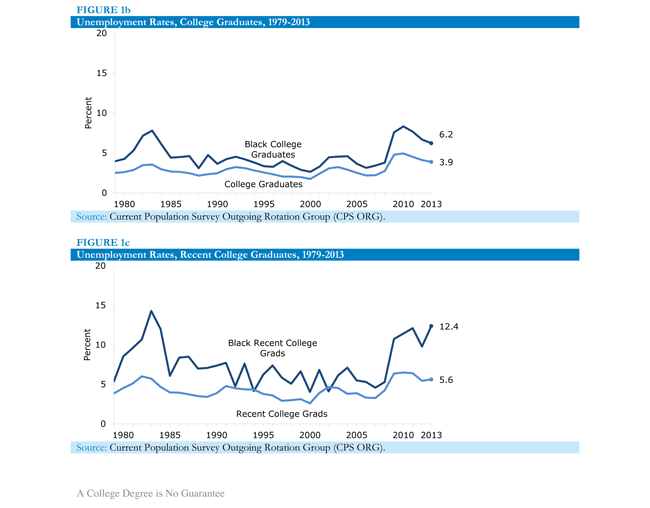
CREDIT: CEPR
But black college graduates don’t just have to deal with higher unemployment rates. Those who manage to get a job aren’t necessarily getting to put their degrees to use. A third of all college graduates were working low-paying jobs that don’t typically require a four-year degree between 2003 and 2013, compared to 40 percent of black college graduates. Recent grads fared even worse: 44 percent of recent graduates ended up in these jobs, but for black ones, the rate has averaged about 50 percent since 2003, and in 2013, it shot up 10 percentage points to 55.9 percent. That means more than half of black people who graduated from college in recent years were in jobs that didn’t use their degrees.
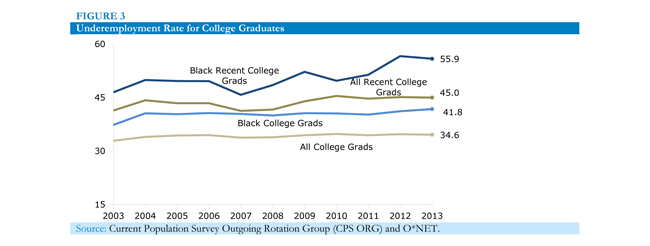
CREDIT: CEPR
This might be fine if black workers ended up in jobs that didn’t require a degree but did pay well. But since 2003, it has been less and less likely that grads in jobs that don’t need a degree were in high-paid ones making at least $45,000, and the drop off has been worst for black graduates, down 6.2 percentage points, and recent black graduates, down 8.2 percentage points. At the same time, more and more graduates have ended up in low-wage jobs that pay less than $25,000 a year, but recent black graduates saw the largest increase — 8 percentage points.
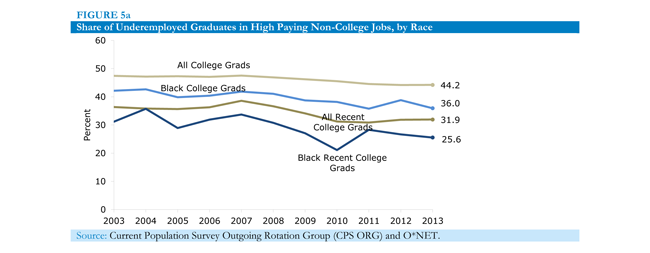
CREDIT: CEPR
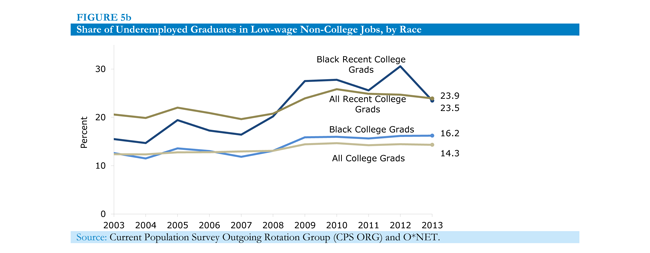
CREDIT: CEPR
The economy is heavily tilted against black people. In a study of entry-level job openings, equally qualified black job applicants were half as likely as white ones to get a call back or an offer. Jobs that drug test are more likely to hire black workers because without the tests, they assume black applicants use drugs. While black workers make up 32 percent of the workforce, they make up 42 percent of minimum wage workers.
Black women have been particularly dogged in recent years in graduating college: they made up two-thirds of all black students who finished a Bachelor’s Degree in 2010 and 71 percent with a Master’s. But they still struggle in other ways: when they’re working full-time, year-round, they make 64 percent of what white men make and less than both white women and black men.
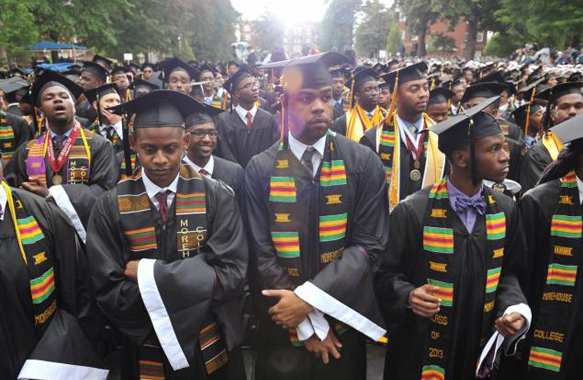











Leave A Comment